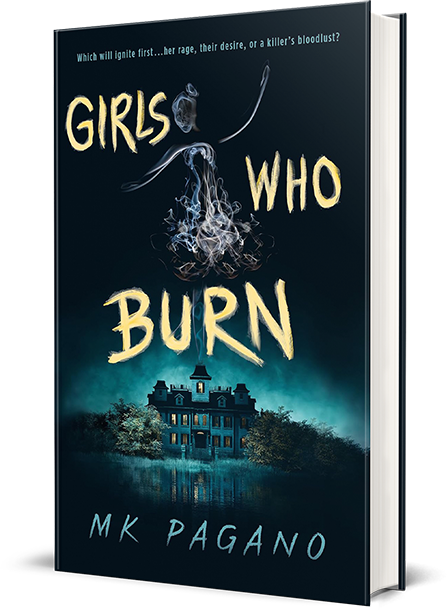The Most Important Lessons I’ve Learned From Fiction

Has anyone ever told you that fiction doesn’t matter?
I’ve heard this from people before. As a fiction writer, “why not try writing about real people, who did real things?” is a question I’ve gotten from time to time.
I’ve tried to explain to people that story, both fictional and non, does matter, in too many ways to count. If you’re reading my blog, you most likely already know this, so I don’t need to convince you here.
Instead I wanted to share the lessons I’ve learned from fiction that have had a significant amount of impact on my own life.
1. Take what you want and pay for it.
My favorite book of all time has several sentences that are not only mind-bogglingly beautiful in their execution, but so, so true. I could fill this entire post with Tana French and The Likeness quotes, but instead I’ll restrain myself and simply share this passage:
“There’s a Spanish proverb,” he said, “that’s always fascinated me. “Take what you want and pay for it, says God.’
“I don’t believe in God,” Daniel said, “but that principle seems to me to have a divinity of its own; a kind of blazing purity. What could be simpler, or more crucial? You can have anything you want, as long as you accept that there is a price and that you will have to pay it.
“Regardless of what the advertising campaigns may tell us, we can’t have it all. Sacrifice is not an option, or an anachronism; it’s a fact of life. We all cut off our own limbs to burn on some altar. The crucial thing is to choose an altar that’s worth it and a limb you can accept losing. To go consenting to the sacrifice.”
My takeaway: Daniel is right. We’re bombarded by media on a daily basis that tells us: YOU CAN HAVE IT ALL. (Especially if you’re a woman.)
But they’re wrong.
For every choice we make, another goes away. We choose to be monogamous, we exclude potential other romantic partners. We choose a full-time job, we’re giving up some freedom. We choose freelance, we’re giving up job security and potentially more money. We choose to write in our spare time, we’re unable to spend that time cleaning our apartments or working out or Sunday Funday-ing with friends.
Life is about choosing one thing over another. And that’s normal.
I didn’t fully get this until reading this book. Coming to this realization has helped me balance my super-busy life (hence all my priorities lists) and made me understand that it’s fine that I can’t do everything. It would be impossible to expect otherwise from myself.
The key is to choose the best things for me, and to embrace that choice — not mourn all the things I didn’t choose.
“To go consenting to the sacrifice.”
2. Joy in the midst of fear.
There is so much to worry about, both personally and globally right now. So how do we reconcile that in our everyday lives? How can we push out the fear?
From Maggie Stiefvater’s The Raven King:
If you cannot be unafraid — be afraid and happy.
My takeaway: Again, so simple — but so true. Being worried about the future doesn’t mean I can’t enjoy the present as well. I can fear for the country, but I can also be happy about this character I’m writing, about my new Christmas tree, about my niece’s laughter.
There’s room in fear for joy, and so that is how I will live.
3. I am not a grown-up — and that’s ok.
I’ve been struggling a bit with how old I am after this last birthday, and how little I’ve accomplished, and how I still don’t feel like a grown-up despite the fact that for all intents and purposes I am one.
And then I read The Ocean at the End of the Lane, by Neil Gaiman:
“Grown-ups don’t look like grown-ups on the inside either. Outside, they’re big and thoughtless and they always know what they’re doing. Inside, they look just like they always have. Like they did when they were your age. Truth is, there aren’t any grown-ups. Not one, in the whole wide world.”
My takeaway: This one should also have been obvious (we’ve just elected a septuagenarian child to run our country) but seeing it put like this really made me think.
Even after having been an “adult” for over a decade now, it still amazes me how little I know, but the older I get, the more I realize how little nearly everyone knows. Some people are just really good at faking it. And so I will continue to do the best I can with what I know — and with everything else, fake it til I make it.
4. Do it anyway.
This last quote isn’t from a book; it’s from a TV show. The spin-off of my favorite TV show ever. Which if you know me, you’ll know this means the show I’m quoting here is Angel.
In Season Two, Angel tries, as always, to save someone; and this time, he fails. Thus begins a self-destructive downward spiral of despair and helplessness, which culminates in Holland Manners telling Angel this: he will never win. Good will never completely triumph over evil. There is no salvation, no heaven. When we do good, all we’re doing is keeping evil at bay. It will keep on coming, and there will be no end.
But it is this realization that leads to Angel’s epiphany:
If there’s no great glorious end to all this, if nothing we do matters — then all that matters is what we do. ‘Cause that’s all there is. What we do. Now. Today.
My takeaway: Lately, especially with the state of the world, I’ve been feeling helpless. Evil appears to have triumphed. Things are going poorly. Does it really matter that I call my senator, that I donate $50 to a charity, that I write this blog post, that I write a novel?
In the face of everything — how much does what I do matter?
The answer is: it doesn’t, not much. It barely makes a dent in the horrible things going on in the world.
But.
I will do it anyway.
Because it’s all I’ve got.
This is echoed in one of the last scenes of the last episode of the entire series. Gunn, having trouble realizing that they’re about to fight another battle in a war they can’t win, goes to the local homeless shelter, which is run by Anne, and finds her packing up a truck of supplies for the homeless. Their exchange:
Gunn: “What if I told you it doesn’t help? What would you do if you found out that none of it matters? That it’s all controlled by forces more powerful and uncaring than we can conceive and they will never let it get better down here? What would you do?”
Anne: “I’d get this truck packed before the new stuff gets here. Wanna give me a hand?”
And he does.
Because even if we can’t win, if evil can never be vanquished, even if there is no afterlife and we won’t be rewarded or punished for what we do in this life — we still must do all the good we can, here, now. Because that’s the only thing that matters.
These are the things I’ve learned from fiction. How about you?
Image found here


[…] book even makes my list of life lessons I’ve learned from fiction, and if I were to get a tattoo, the below quote–written on the Traveling Symphony’s […]
[…] On still yet another hand, if nothing we do matters, all that matters is what we do. […]
[…] when I have to remind myself of the other life lesson I’ve taken to […]
The Tana French quote is one i literally care with me. The Angel quote is new to me only this month & it hit me hard. I’ll investigate the others – we obviously have similar temperaments. Thank you.